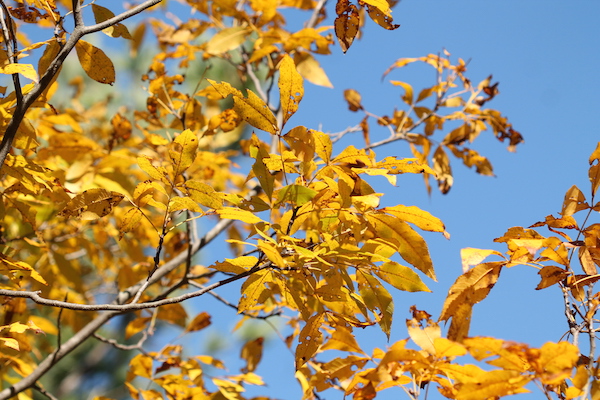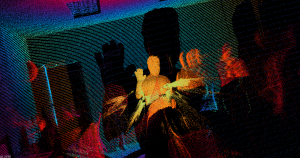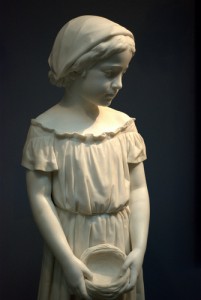I am not special.
I am human, and there is nothing that makes me special. I am composed of the same atoms as every other thing in existence in this universe. I am no more special than the Jacaranda trees blooming outside my window, than the magpies cawing from their perches on the roof, than the strangers whose eyes catch mine on the street.
And yet I am unique: There is exactly one organization of atoms that is me. There is exactly one set of events that could have given rise to the person I am, because if any other events had occurred, I would not be exactly the same as I am right now. It's almost so obvious it isn't worth stating. Almost.
Copernicus and Galileo weren't special, either
Humans have always held a biased view of their existence. We placed ourselves in a geocentric, Ptolemaic universe, with the stars and planets revolving around us. We were reluctant to abandon our pedestal: When Copernicus proposed a heliocentric model of the universe, supporters of the theory were condemned for heresy. Galileo was lucky: He was just placed under permanent house arrest. Giordano Bruno was burned at the stake. Fast-forward through a few hundred years of debate and you reach today, when it is accepted that our planet does not sit in a privileged location in the universe, but most people are still uncomfortable with the idea that we might just be here by chance.
In a universe of 70 sextillion stars (and that's just the observable universe, according to a 2003 estimate), it is nearly inevitable that at least one planet would form in the habitable range around a star, and that the right combination of elements would be present for some form of life to develop and evolve enough for beings conscious of their own existence to arise (Argyle, 1977; Ellis & Brundit, 1979; Hoyle & Wickramasinghe, 1999). Our Earth happens to be one such planet.
It's all physical
I'm going to propose something radical: The universe is a purely physical place. If this is true, it follows that everything in it is also physical, including the mind and mental states. This tends to be a huge point of contention, as the majority of the people in the world adhere to a dualist theory of mind, in which the body is physical but the mind is made of a corporeal substance, unexplainable in physical terms and irreducible to physical states of the brain. (More specifically, most world religions adhere to some form of dualism, e.g., the belief that one has a soul, and the majority of the people in the world adhere to one of these religions.)
There are a number of problems with this approach, most notably the fact that the dualist perspective cannot satisfactorily answer the question of how the mind and body can interact if they have no causal properties in common. Descartes proposed a substance he called animal spirits as a go-between, which merely begged the question (Churchland, 1988); 17th century philosopher Arnold Geulincx suggested the interaction was merely an illusion and that the brain and mind don't actually affect each other at all (Livingston, 2002). The seemingly plausible suggestion that the mind and brain are connected through a form of energy not yet understood is a logical argument from ignorance. Dualists argue that the mental domain is not lawful, that concepts such as truth, love, and beauty are forever beyond reduction--and yet biologists have found ways to reduce life, which was also once said to be irreducible and magical (Churchland, 1988). Why can't the mind be a similar case?
Another problem to solve was that of consciousness: If the mind is not made of a special substance, then how does matter organized into a brain give rise to consciousness when matter organized in other ways does not? Various theories suggest that it is exactly this--the particular organization of the brain and the sheer number of connections between neurons--that is responsible for consciousness (see, e.g., Edelman & Tononi, 2000; Hofstadter, 2007). The details of these theories I'll leave for a later date.
Science says
If you are inclined to believe scientific evidence, the theories that win out reduce the mind to matter. I could easily spend a few thousand more words explaining why this is the case, but I'll move on for the sake of finishing my explanation of the site name.
In a physical world, people (along with all other living things on Earth) originate from DNA in a purely physical process. You may have heard of the "nature versus nurture" debate: Are we just our genes? Is everything we are predetermined by our DNA, or does the environment in which we grow up and live play some role? I've never understood why it's a debate. Studies of twins have shown that possessing identical DNA will not give rise to identical people (Harris, 2007), which disproves the "we are just our genes" hypothesis. DNA obviously has some affect, and Harris cites evidence that genes account for about 45% of personality, but what makes people and creatures (otherwise known as agents) who or what they are is the interaction of their genes and their environment. Every agent is the sum of everything internal to it and its interactions with everything external to it. Humans are no exception. I am no exception.
Thus the title.
References:
Argyle, E. (1977). Change and the Origin of Life. Origin of Life, 8: 287-298.
Churchland, Paul. (1988). Matter & Consciousness. Cambridge, MA: MIT Press/Bradford Books.
Edelman, G., & Tononi, G. (2000). Consciousness: How matter becomes imagination. Penguin Books, London, England.
Ellis, F., & Brundrit, G. (1979). Life in the Infinite Universe. Royal Astronomical Society, 20: 37-41.
Harris, J. (2007). No Two Alike. W.W. Norton & Co.
Hofstadter, D. (2007). I Am a Strange Loop. Basic Books.
Hoyle, F., & Wickramasinghe, N. (1999). The Universe and Life: Deductions from the Weak Anthropic Principle. Astrophysics and Space Science, 268: 89–102
Livingston, K. Integrating the Sciences of Mind. Chapter 2.








